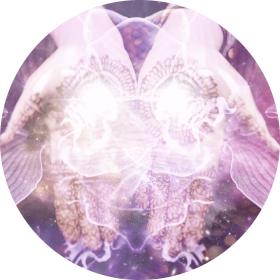Omen

Uncover hidden spiritual meanings
A sign of good or evil that is interpreted from a seemingly ordinary occurance.
Omens are commonly known to be situations of either fortuitous or foreboding happenstance.
Omens are visions inspired by God in the form of a plant, animal or situation which can be seen as serendipitous. In many different spiritual beliefs around the world, omens have been represented in one way or another.
The story of the dove in the Bible after Noah and the flood, was an omen or good tiding letting everyone know that God was no longer angry and that peace could be found when the waters subsided. In other traditions in the world, omens are more man produced such as in the form of animal sacrifice in a sacred fire in order to ‘read’ the entrails of the animal as a form of divination.
Whatever the tradition, omens, bad and good are the superstitions which fuel inspiration, fear, enlightenment and excitedness all over the world.
Omens can be derived from a seemingly ordinary happening such as an eagle flying overhead or the way that a tarot card fell out of the deck when attempting to shuffle.
What matters is that the person doing the seeking, has a knowledge or an understanding of connecting to some form of higher source energy which they feel guides them to a particular understanding as a result of the presence of an omen.
In short, an omen signifies a very important or adverse change. In ancient times, people believed that an omen lay squarely with their god’s divine message. Omens include some natural phenomena like the abnormal births in both animals and humans, eclipses, and the behaviors of the sacrificial lamb.
There were specialists who were referred to the omen as diviners, who were given the mandate to interpret what the omen was all about.
How do we interpret an omen?
There were different methods which were used to interpret the omens which include a specialist using artificial methods to gain answers from the divine. The answers from the divine include; yes or no and other times favorable or unfavorable answers.
Omen’s are used to predict what would happen in the future.
Origin of the Omen
The origin of the word omen is unknown, though it is mostly used to reference changes of nature or outcome of an event. This can be either good or bad and it is mostly used in a foreboding sense to mean ominous. The word “omen” has been connected to the Latin word “Audre” which means “to hear”
How It Was Practiced in Ancient times?
It is believed that in the East, the belief in Omen’s were practiced in Mesopotamia and it is evidently seen to have been practiced at first half of the 2nd millennium BC. In Mesopotamia, there were three methods which were used to interpret an omen; laparoscopy which involved liver divination; libanomancy, and lecanomancy. During laparoscopy, the abnormalities and irregularities of the liver of sacrificed sheep were observed and then used for predicting the future to the royal house-hold.
In the 7th century, there were several astrological omens in Assyria, where diviners gain much influence through interpreting them. They did advise the kings on how to handle certain wars and situations - and hence avoid a terrible fate. In Assyria, a substitute King was placed while the true King went into hiding for a while. The work of the substitute King was to take all the evil consequences and when the danger was believed to be over. Amazingly, the substitute King was executed while the true King took over the throne.
The belief in omens, later on, spread from the East to other regions like Israel, where they used sheep liver which was modeled from clay for to allow the craft to be learned by the diviners who then interpreted the omens. They used lecanomancy and libanomancy.
In ancient Greece, lightning and thunder were believed to be omens which were sent from Zeus and the diviners observed the direction in which they heard or saw them in order to interpret them. The omens represented the decisions and will of the gods, their positioning opposite to human endeavors and they were meant to be understood by the receivers of the times who became the intermediaries, the channels between the divine and the humans.
We hope you liked this article. Please support us by liking us on Facebook. Thank you in advance.
By Florance Saul
Oct 2, 2012







